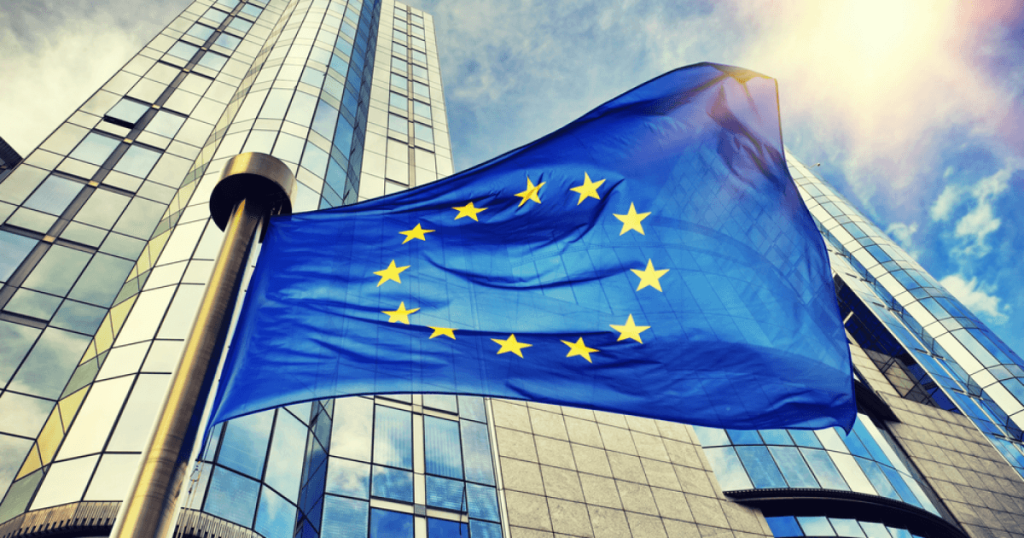• The EU will push for accelerated delivery on the Paris Agreement through new Nationally Determined Contributions (NDCs) and commitments to tripling renewables and doubling energy efficiency by 2030.
• The bloc will formally submit its 2035 NDC, targeting a 66–72.5% reduction in net emissions from 1990 levels, on the path to climate neutrality by 2050.
• The EU will also support efforts to scale global climate finance to at least $1.3 trillion per year by 2035 and advance global carbon market cooperation.
Europe Seeks to Cement Global Leadership at COP30
As global leaders convene for the UN Climate Change Conference (COP30) from 10–21 November, the European Union enters negotiations intent on reinforcing international cooperation to keep the Paris Agreement’s 1.5°C goal within reach. European Commission President Ursula von der Leyen said the EU’s message would be clear: the clean energy transition is “ongoing and irreversible,” but fairness and inclusion must define its pace and scope.
The EU’s agenda for Belém is framed by an insistence that multilateral action remains vital — particularly for small island states and least developed nations facing acute climate threats. Officials describe the conference as a moment to close the implementation gap exposed by the first Global Stocktake and to deliver a coordinated plan to accelerate decarbonisation across all major economies.
Sharpening Ambition: From Paris to Belém
Central to the EU’s position is the call for all COP Parties to strengthen their Nationally Determined Contributions. The bloc’s forthcoming NDC commits to cutting net greenhouse gas emissions by 66.25–72.5% by 2035, relative to 1990 levels. This aligns with its trajectory toward a 90% reduction by 2040 and full climate neutrality by mid-century. The targets, covering all sectors and greenhouse gases, reflect Europe’s intent to set a global benchmark for transition credibility and policy coherence.
The Commission views this as the next step in a decade-long legislative and financial framework — from carbon market expansion and the Social Climate Fund to the Innovation and Modernisation Funds — designed to sustain industrial competitiveness while reducing dependency on fossil fuels.
Delivering on Global Stocktake and Energy Pledges
Negotiators in Belém are expected to build on the findings of the UN’s Synthesis Report, which reviewed national progress under the Paris framework. The EU will urge governments to operationalise commitments made at COP28, including the Global Pledge to triple renewable capacity and double energy efficiency rates by 2030.
At the same time, the EU supports advancing work on the UAE–Belém Framework for Global Climate Resilience, with an emphasis on establishing robust adaptation indicators. These metrics would help countries measure preparedness, strengthen climate risk governance, and better target financial flows.
Finance and Carbon Markets in Focus
Climate finance remains the most contentious and pivotal theme at COP30. The “Baku to Belém Roadmap,” to be jointly presented by Azerbaijan and Brazil, calls for scaling funding for developing economies to at least $1.3 trillion annually by 2035. The EU, already the world’s largest public climate financier, provided €31.7 billion in public funds and mobilised an additional €11 billion in private finance in 2024. Brussels is expected to use these figures to urge comparable ambition from other major economies and private investors.
On carbon markets, the EU supports the COP30 Presidency’s proposal to launch the Open Coalition for Compliance Carbon Markets — a forum for countries advancing carbon pricing schemes. EU officials argue that effective, transparent markets could enhance global alignment and drive capital toward verifiable mitigation outcomes.
RELATED ARTICLE: EU Council Approves Simplification of Carbon Border Adjustment Mechanism
Industrial Transition and Global Partnerships
President von der Leyen will attend multiple sessions, including the High-Level Roundtable on Industry Decarbonisation, where discussions will focus on guiding heavy industry toward low-carbon energy sources and technologies. The EU’s broader diplomatic engagement will extend beyond the negotiating table, with bilateral meetings planned with governments, multilateral institutions, and civil society.
Executive Vice-President Teresa Ribera and Commissioners Wopke Hoekstra and Ditte Juul Jørgensen will lead sessions on local leadership, energy transition, and methane reduction. The bloc also continues co-chairing the Global Methane Pledge alongside Canada, reinforcing its focus on cross-sector emissions reductions.
From Regional Leadership to Global Leverage
Since 1990, the EU has reduced greenhouse gas emissions by 37% while expanding its economy by nearly 70%, now accounting for roughly 6% of global emissions. That record, coupled with its binding climate law and regulatory architecture, allows the bloc to enter COP30 with both policy credibility and economic leverage. Yet EU negotiators acknowledge that credibility now depends on delivery — not only at home but through partnerships capable of scaling impact across developing economies.
As the world’s attention turns to Belém, the European Union’s posture reflects a dual ambition: to sustain its leadership in the clean transition and to strengthen a global system of accountability and finance robust enough to meet the Paris Agreement’s most difficult test — implementation.
Follow ESG News on LinkedIn

